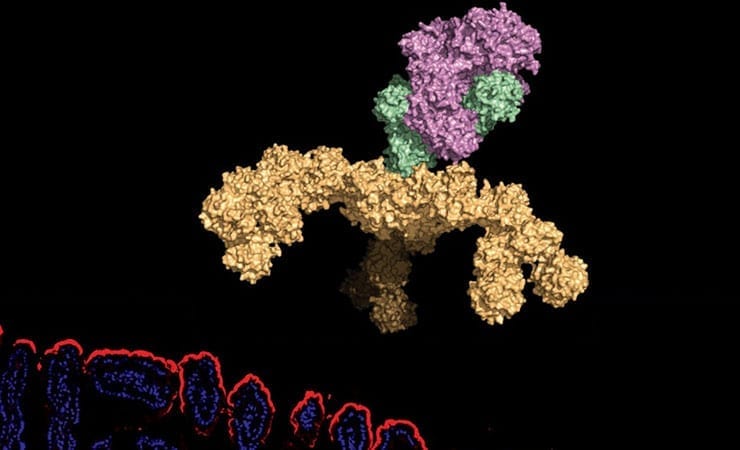Clostridium botulinum bacteria produce the most deadly toxin we know of. Scientists from the Biotechnology and Biological Sciences Research Council (BBSRC) strategically-funded Institute of Food Research have discovered genes that are crucial for its germination, which may present a new way of stopping these deadly bacteria growing in our food.
Botulinum spores are found throughout the environment. If they contaminate food, under certain conditions they can germinate and reproduce in our food, and generate a neurotoxin. This is when they become dangerous, as anyone eating this can develop botulism, a rare but potentially fatal condition. Stringent measures are taken by food manufacturers to stop this happening, and fortunately botulism outbreaks are now quite rare. But until now, we’ve known surprisingly little about the germination process.
Botulinum spores only germinate in a suitable environment, for example in the presence of nutrients which they sense through specialized receptors. These receptors then trigger a chain of events that lead to the spore becoming viable.
Clostridium botulinum has had its genome sequenced, and by comparison with other bacteria it is possible to identify genes that look like they might be involved in the spore germination process.
The researchers at IFR systematically turned off these candidate genes to see which were crucial for germination.
The research, published in the journal PLOS Pathogens, identified two sets of genes that C. botulinum needs, and which must act together for the spores to germinate in response to the correct stimulus, in this case the presence of a nutrient amino acid. This allowed them to build a much better understanding of exactly how the spores germinate.
Dr Jason Brunt of the Institute for Food Research said: “As more is understood of the complex germination systems in clostridia, it may be conceivable to formulate detailed strategies to interrupt this process. This would be of great benefit to help control pathogenic clostridia, for the food industry.”
Read the findings at PLoS Pathogens: Functional Characterisation of Germinant Receptors in Clostridium botulinum and Clostridium sporogenes Presents Novel Insights into Spore Germination Systems.
Source: BBSRC, adapted.


